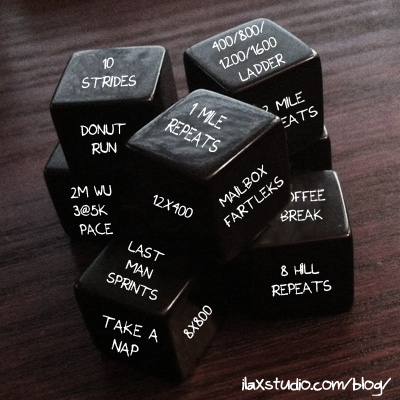Yesterday was my six-year anniversary at work! While six years is the longest I’ve worked at any job, it’s hardly a drop in the bucket for a federal employee. A LOT of people work at my agency for their entire career from college to retirement. Thirty-five and forty years of service is not that uncommon, which is pretty cool (when I don’t think about that in comparison to how many more years of my life I’ll be working, ha ha)!
Strangely, I feel like I should be introspective about this anniversary, and think about upcoming years at work… but that’s just not me. I’m not a goal-setter or very long term planner. Really, if my job has taught me one thing, it’s how to go with the flow and be adaptable during times of uncertainty. Things are constantly changing in the federal workforce (for better or for worse), and I’m actually astonished at how much my job has changed in six years, and wonder what the future will bring. But because it does change so much, I realize it’s futile to put much stock in future goals/plans, which sounds horribly pessimistic, but truthfully, is just reality.
Sigh, I really thought I was giving you guys a break from running talk, which has been way too abundant on this blog lately, but my thoughts about work preparing me for uncertainty connect way too easily with an interesting article I just read in the January/February issue of Running Times.
In the article, the author talks about how we maintain as much control in our interval/speed running workouts as we can – we decide on the pace, duration, intensity, rest intervals and so forth. You often start a workout and expect a certain outcome from it. Which is all fine and dandy, except that is not how races work – you have no idea what the competition will bring (if that matters to you), what the conditions will be that day, and how you’ll feel. Basically, there is much more uncertainty at a race – all you know is when it is and how long you’ll run.
So the author suggests training for uncertainty, to strengthen that mental muscle, with some fun ideas:
- If you work with a coach, have them divulge less details about the workout in advance.
- If you’re with a group, encourage people in the group to “surge” forward from time to time, and have everyone keep up.
- If you’re alone, be less of a slave to the watch for those repeats, and run by feel for some.
- Or have “uncertainty” days where you choose from a list of workouts or roll a die to see what you’ll do.
Interesting, right? I liked xaarlin‘s idea when I shared this article with her – that on our speed days, we contact the other person right before the workout and they choose from a list of workout ideas, what you’ll be doing. Sounds like fun (even though I tend to be someone who doesn’t like being told what to do, and can’t follow a plan – this is kind of different from a plan, though!).
Even though I’m not someone who does any sort of speed work, and rarely races competitively, I do think something like this would be good for mental training. I was shocked at the race Friday night when someone tried to pass me right before the first mile and I could surge ahead. Maybe that can translate over in to mid-race tiredness with longer distances (when I have no hope of an age group placement and can’t use that for a mental push)?! Maybe I’ll try this sort of training out in the new year.
So, yeah. Planning to train for uncertainty. Trying to be ready for life’s little hiccups. Seems like we’re trying to cheat the system! Hee hee, but it’s something I see as important in all aspects of life – at work, in exercise, in relationships – the more prepared you are that stuff might not go as planned, the more capable you are of dealing with it (duh, Kim, we know!).
How do you prepare for uncertainty in your life?



I tend to be the type to plan out everything and have a plan B, C, D…Z. Uncertainty is my enemy. However, one of my goals in the New Year is to learn how to act intuitively, even if that goes against my plans. For instance, if I didn’t get enough sleep and my muscles hurt, I’m going to allow myself to adjust or abandon a workout. We’ll see how it goes because it’s terrifying to me to stray from a plan!
Good for you for giving it a go!!! I bet the more you practice it, the easier it will come 🙂
Can you plan for uncertainty? At this point in my life, I’ve learned to just roll with it…
I don’t think you can plan for exactly what can happen, but you can train yourself on how you will handle it! Or as you said, how to roll with it! 🙂
Interesting! I like the “partner picks” workout idea. I also show up for gym classes– you never really know what’s going to be planned!
Oh yeah – gym classes are just like that, good point! 🙂
Interesting! Sounds like a good idea to try to train for uncertainty, but in a way, life kind of forces you to do that anyway, doesn’t it? Just not specifically for running… 😉
It certainly does! And not only for running. Actually, running is probably one of the most certain things in my life, for me, at most times! LOL! Probably why I like to run so much – it’s something I can control 🙂
Very interesting, I’ve never thought about training this way. I like to think my training is flexible but I really do control a lot of the plan. Plus this sounds like a lot of fun.
Doesn’t it?! Let me know if you try it!
There are days I kind of feel like I am just having a break before the next big thing hits lol but i try to just enjoy the good when it’s good. Since I am old, I have learned it’s hard to tell what is around the corner. I try to not think to far ahead because when I realize I may be working 20 more years I get real grumpy. My commitment is working out four days a week, what i do in those four days changes with the season, but I try to keep up that basic commitment.
I am the WORST at handling uncertainty, and I think that’s why I dread races so much. It was also why I had such a hard time looking for a job after graduation. It’s definitely a personality thing (the -J part of the Meyers-Briggs, I think.)!
I haven’t thought about training for race-day uncertainty. I guess I was trying to do that by signing up for more races–that way, I get used to having varying degrees of factors I can’t control. And more importantly, seeing that even if you have a bad race, WHO CARES? Literally no one!
Yeah, I was going to say, you know that about your racing and are working on it, which I think is great! Ha ha ha, and truth. No one cares but us. Really. No one cares. LOL!!!! People will be supportive either way 🙂 (unless they’re an ass)